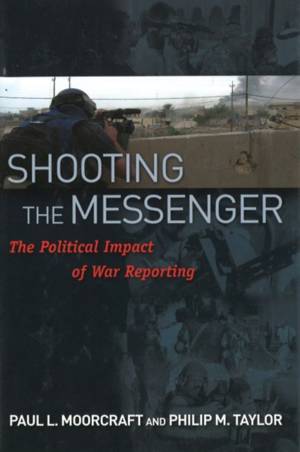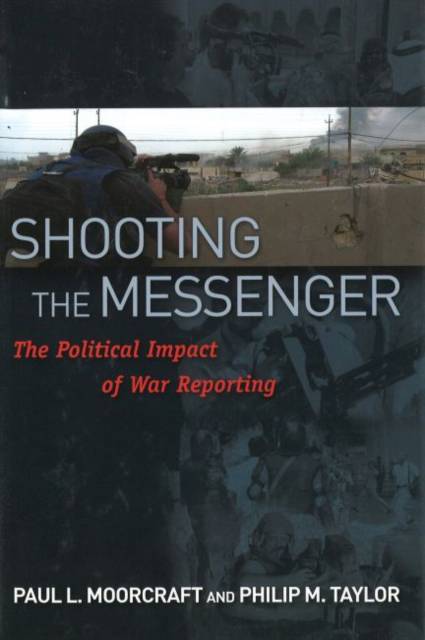
- Afhalen na 1 uur in een winkel met voorraad
- Gratis thuislevering in België vanaf € 30
- Ruim aanbod met 7 miljoen producten
- Afhalen na 1 uur in een winkel met voorraad
- Gratis thuislevering in België vanaf € 30
- Ruim aanbod met 7 miljoen producten
Zoeken
Shooting the Messenger
The Political Impact of War Reporting
Paul L Moorcraft, Philip M Taylor
Hardcover | Engels
€ 41,95
+ 83 punten
Omschrijving
As the literature on military-media relations grows, it is informed by antagonism either from journalists who report on wars or from ex-soldiers in their memoirs. Academics who attempt more judicious accounts rarely have any professional military or media experience. A working knowledge of the operational constraints of both professions underscores Shooting the Messenger. A veteran war correspondent and think tank director, Paul L. Moorcraft has served in the British Ministry of Defence, while historian-by-training Philip M. Taylor is a professor of international communications who has lectured widely to the U.S. military and at NATO institutions. Some of the topics they examine in this wide-ranging history of military-media relations are: - the interface between soldiers and civilian reporters covering conflicts - the sometimes grey area between reporters' right or need to know and the operational security constraints imposed by the military - the military's manipulation of journalists who accept it as a trade-off for safer battlefield access - the resultant gap between images of war and their reality - the evolving nature of media technology and the difficulties--and opportunities--this poses to the military - journalistic performance in reporting conflict as an observer or a participant Moorcraft and Taylor provide a bridge over which each side can pass and a path to mutual understanding.
Specificaties
Betrokkenen
- Auteur(s):
- Uitgeverij:
Inhoud
- Aantal bladzijden:
- 336
- Taal:
- Engels
Eigenschappen
- Productcode (EAN):
- 9781574889475
- Verschijningsdatum:
- 1/06/2008
- Uitvoering:
- Hardcover
- Formaat:
- Genaaid
- Afmetingen:
- 161 mm x 230 mm
- Gewicht:
- 612 g

Alleen bij Standaard Boekhandel
+ 83 punten op je klantenkaart van Standaard Boekhandel
Beoordelingen
We publiceren alleen reviews die voldoen aan de voorwaarden voor reviews. Bekijk onze voorwaarden voor reviews.











